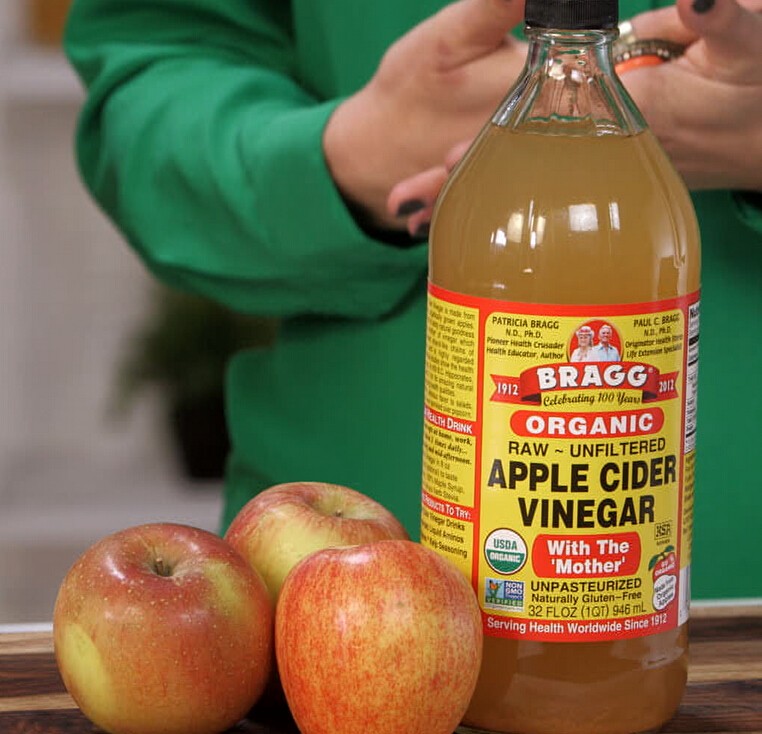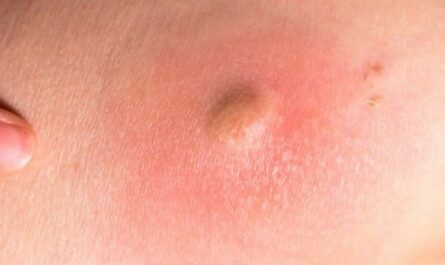Having a stuffy nose can be incredibly frustrating. It’s not only uncomfortable, but it can also disrupt your sleep, and affect your sense of taste and smell. Whether it’s due to allergies, a common cold, or sinus congestion, finding relief is essential. In this article, we will explore 12 natural remedies to help you get rid of that annoying stuffy nose.
What is a Stuffy Nose?
A stuffy nose, also known as nasal congestion, is a common condition characterized by a blocked or stuffy feeling in the nasal passages. It occurs when the tissues lining the nose become swollen and inflamed, making it difficult to breathe through the nose.
When you have a stuffy nose, you may experience symptoms such as:
- Difficulty breathing through the nose: The nasal passages feel obstructed or blocked, making it challenging to inhale and exhale through the nose.
- Reduced sense of smell: Nasal congestion can interfere with your ability to smell and detect odors properly.
- Runny nose: In some cases, nasal congestion may be accompanied by a runny nose, resulting in a discharge of clear or thick mucus from the nostrils.
- Sinus pressure and pain: Nasal congestion can cause pressure and discomfort in the sinuses, which are hollow spaces in the skull connected to the nasal passages.
- Snoring or disrupted sleep: Congestion can hinder airflow, leading to snoring or difficulty sleeping comfortably.

What Causes Stuffy Nose or Nasal Congestion?
Nasal congestion, also known as a stuffy nose, can be caused by a variety of factors. Understanding the underlying causes can help you better manage and prevent nasal congestion. Here are some common causes:
1. Allergies
Allergic reactions to substances such as pollen, dust mites, pet dander, or mold can trigger nasal congestion. When you come into contact with allergens, your immune system releases chemicals that cause inflammation in your nasal passages, leading to congestion.
2. Common Cold and Respiratory Infections
Viral infections, such as the common cold, flu, or sinus infections, often result in nasal congestion. These infections cause inflammation and swelling of the nasal tissues, leading to a stuffy nose.
3. Sinusitis
Sinusitis refers to inflammation of the sinuses, which are air-filled cavities in the skull. When the sinuses become infected or blocked due to issues like allergies or infections, it can result in nasal congestion. Other common symptoms of sinusitis include facial pain, pressure, and thick nasal discharge.
4. Environmental Factors
Exposure to environmental irritants like smoke, strong odors, air pollution, or chemical fumes can irritate your nasal passages and lead to congestion. Prolonged exposure to dry air or low humidity levels can also dry out the nasal passages and cause congestion.
5. Deviated Septum
A deviated septum occurs when the thin wall (septum) between your nostrils is off-center or crooked. This structural abnormality can obstruct airflow and lead to chronic nasal congestion.
6. Nasal Polyps
Nasal polyps are noncancerous growths that develop on the lining of the nasal passages or sinuses. These growths can block the nasal passages, leading to chronic congestion, difficulty breathing, and a reduced sense of smell.
7. Hormonal Changes
Hormonal changes during pregnancy or menstruation can cause nasal congestion in some individuals. Increased blood flow to the nasal tissues and changes in mucus production can contribute to temporary nasal congestion.
8. Medications
Certain medications, such as decongestant nasal sprays, can provide temporary relief from congestion but may cause rebound congestion if used for an extended period. Other medications, such as antihistamines or blood pressure medications, can also contribute to nasal dryness and congestion as a side effect.

How to Get Rid of a Stuffy Nose with Immediate Relief Methods
1. Breathing Techniques
One effective method to relieve nasal congestion is through breathing techniques. The Buteyko Method, developed by Russian doctor Konstantin Buteyko, focuses on slowing down your breathing and reducing hyperventilation.
By breathing gently through your nose and maintaining a relaxed posture, you can help open up your nasal passages and reduce congestion. The Buteyko Method emphasizes the importance of nasal breathing. This is because it helps filter, warm, and humidify the air before it reaches the lungs.
Another breathing technique that can provide relief is diaphragmatic breathing. This technique involves breathing deeply into your diaphragm rather than shallowly into your chest.
To practice diaphragmatic breathing, sit or lie down in a comfortable position. Place one hand on your chest and the other on your abdomen.
Take a slow, deep breath through your nose, allowing your abdomen to rise as you inhale. Exhale slowly through your mouth, feeling your abdomen fall. This type of deep breathing helps promote proper airflow, reduce stress, and alleviate congestion.
2. Steam Inhalation
Steam inhalation is a popular home remedy for nasal congestion. The steam helps moisturize and soothe the nasal passages, making it easier to breathe. To try steam inhalation, you can start by standing in a steamy shower for a few minutes. The warm water and steam help create a humid environment that can help loosen mucus and relieve congestion.
Another method is to create a steam tent by leaning over a bowl of hot water with a towel draped over your head. Place a few drops of eucalyptus or peppermint essential oil into the hot water for added relief. Eucalyptus oil has natural decongestant properties and can help open up the nasal passages.
Peppermint oil has a cooling effect and can provide a soothing sensation. Inhale the steam deeply, taking slow breaths through your nose. Be cautious not to get too close to the hot water to avoid burns.
3. Warm Compress
Applying a warm compress to your face can help relieve nasal congestion by reducing inflammation and promoting blood flow to the nasal passages. To apply a warm compress, start by soaking a clean washcloth in warm (not hot) water.
Wring out the excess moisture and fold the washcloth. Gently place the warm compress over your nose and forehead, making sure it covers the areas where you feel congestion.
Leave it on for a few minutes, allowing the warmth to penetrate the nasal tissues and alleviate congestion. You can reheat the washcloth as needed to maintain warmth.
4. Take a hot shower or bath
If you are having problems with nasal decongestion, taking a hot shower may be the best option for you to have. The steam will help soothe the irritated blood vessels and soften the mucus to drain the mucus stuck in your nose. The hot shower will help relieve inflammation and help you breathe better.
Get ready for hot water, close the bathroom door, and not let steam escape. Then take a steamy shower. If you do not want to bathe, you can also inhale the vapors by other methods.
5. Hydrate yourself from the inside
It may be easy to forget about hydrating yourself when you can think about how you cannot breathe. There are different types of liquids that you can take. Water is still the best option, but if you want to drink other liquids, this will be fine too. You can take sports drinks, juices, and even clear soups.
Through the fluids, the mucus will be removed from your nose. The less pressure there is, the less inflamed your sinuses will be. Remember that if you are also experiencing a sore throat and stuffy nose, you should take only warm fluids to soothe the irritation.
How to Get Rid of a Stuffy Nose with Natural Remedies
Here are some natural remedies to clear your nose and help you breathe better during the day and at night.
1. Saline Nasal Spray
A saline nasal spray is a very effective way to reduce nasal congestion. It can increase the moisture in the nostrils and thin the mucus in the nasal cavity. At the same time, saline can help you discharge the mucus or bacteria to relieve the inflammation of your nose.
When choosing the right saline spray, choose the ones labeled saline-only. This means you are getting pure saline and will not be exposed to other medications. This method is not recommended for pregnant women. Some saline sprays also include decongestants; you should consult your physician before using them.
- You can buy a sterile saline spray at most pharmacies.
- Mix 1 cup warm water and 1/4 teaspoon salt in sterile water.
- Leaning against the edge of the sink, choose a suitable posture.
- Slowly spray saline into a nostril. You can direct your nostrils toward the drain, allowing water to flow easily from your nose.
- You can do this 2-3 times a day. Using it too much might aggravate the condition.
2. Try Neti Pot

Neti Pot has been used for centuries to clear out the sinuses. They are meant to make a pathway so the mucus can be effectively cleared. It contains a saline solution to help remove the mucus from each nostril. You can get relief within minutes, provided you will use it correctly.
- Mix 1/2 teaspoon of non-iodized salt with 6 ounces of warm boiled water until the salt dissolves completely.
- Leaning against the edge of the sink turn your head to the side. Keep your forehead slightly higher than the chin.
- Avoid talking and breathe through your mouth to close off your mouth and throat.
- Slowly Insert the spout into one nostril and spray the saline. Repeat the process on the other side nostril. If the saline drains out, lower your forehead slightly.
- Clear your nose gently and remove the excess water.
- At last clean and dry your neti pot to prevent bacteria growth.
3. Eucalyptus Oil
Eucalyptus oil can be beneficial for people who are suffering from nasal congestion. This oil comes from the Eucalyptus tree and has been used for a long time because of its healing properties.
When you inhale Eucalyptus oil, this can help decrease the inflammation of the nasal lining. This will be effective in making you breathe easily.
Place a few drops of the Eucalyptus oil in a pot of boiling water and allow yourself to inhale the steam. If you have an oil diffuser inside your room, you can also place a few drops and let yourself inhale the healing scent of eucalyptus.
You can also place a few drops of the eucalyptus oil on a clean cloth or handkerchief. Then inhale the eucalyptus oil whenever needed for instant nasal relief. To sleep better, eucalyptus oil can also be placed on the pillow for relief at night.
4. Apple Cider Vinegar

ACV has always been listed as one of the home remedies that people should use for a wide array of various conditions. It is not surprising that this can also be effective against a stuffy nose. It can help thin out the mucus so that you can breathe better. If you want instant relief, add some ACV to your diet.
Prepare a cup of warm water. Then add two tablespoons of apple cider vinegar and a tablespoon of honey into the water. This will make the mixture taste better. Drink about three times a day for a week or until the nasal congestion becomes better.
5. Take a thyme tea

Thyme tea is an excellent respiratory disinfectant. It has antiviral properties that can help cure colds, coughs, or stuffy noses. Moreover, it is a highly recommended herb for diseases such as colds, flu, chills, and tonsillitis.
Boil one cup of water and turn off the heat. Then add 1 to 2g of dried thyme to the water and wait 10 minutes. Drink 3 cups of this infusion a day. If you have a sore throat in the mouth, add a teaspoon of honey.
You can also inhale the thyme. Add 5 to 10 drops of essential oil of wild thyme in a bowl of hot water. You can also mix the oil with other essential oils like eucalyptus. Inhale for 10 to 15 minutes each, with 1 to 3 times a day.
Note: Thyme essential oil is contraindicated in pregnant women, breastfeeding, and young children.
6. Onions
Onions contain sulfur compounds that have anti-inflammatory and anti-infective properties. It helps to excrete mucus by diluting secretions.
In addition, onions contain vitamin C, which can help fight disease and improve immune defenses. Finally, cutting the onion can make you cry and help open the sinuses.
Cut the onion in half with a knife. Put it on your nose and sniff the smell. This can effectively help clear the nose and remove the symptoms of stuffy nasal congestion. You can also put a half-onion on your bedside table to unclog the sinuses during sleep.

How to Get Rid of a Stuffy Nose with Diet and Nutrition?
A stuffy nose can be quite bothersome, but did you know that certain dietary choices can help alleviate nasal congestion? In this section, we’ll explore how you can get rid of a stuffy nose through your diet. Let’s dive in!
1. Increase Fluid Intake
Staying hydrated is essential for thinning out mucus and relieving congestion. Make sure to drink plenty of water throughout the day. Additionally, consuming warm fluids like herbal teas, broths, and soups can provide extra relief by moisturizing your nasal passages.
2. Include Spicy Foods
Spicy foods, such as chili peppers and horseradish, can help clear nasal congestion. They contain compounds like capsaicin, which can temporarily open up your airways and promote easier breathing. Add a dash of hot sauce or sprinkle some cayenne pepper on your meals to reap the benefits.
3. Consume Foods Rich in Vitamin C
Vitamin C is known for its immune-boosting properties and its ability to reduce inflammation. Citrus fruits like oranges, lemons, and grapefruits are excellent sources of vitamin C. Incorporate these fruits into your diet to support your immune system and potentially alleviate nasal congestion.
4. Include Anti-Inflammatory Foods
Inflammation often accompanies nasal congestion. Including anti-inflammatory foods in your diet can help reduce the swelling in your nasal passages. Some examples of anti-inflammatory foods include fatty fish (like salmon and sardines), leafy greens, turmeric, ginger, and walnuts.
5. Avoid Dairy Products
For some individuals, dairy products can worsen nasal congestion due to their potential to increase mucus production. If you notice that dairy exacerbates your stuffy nose, try reducing or eliminating these products from your diet temporarily to see if it makes a difference.
6. Stay Away from Foods That Trigger Allergies
If your stuffy nose is caused by allergies, it’s important to identify and avoid foods that may trigger your symptoms. Common allergens include peanuts, tree nuts, shellfish, eggs, soy, and wheat. Keep a food diary and consult with a healthcare professional or allergist to determine your specific food triggers.
7. Opt for Warm and Spicy Herbal Teas
Drinking warm herbal teas can provide relief from nasal congestion. Look for teas that contain ingredients like ginger, peppermint, eucalyptus, or chamomile. These herbs have natural decongestant properties and can help clear your airways.
8. Stay Away from Alcohol and Caffeine
Alcohol and caffeine can dehydrate your body, potentially leading to thicker mucus and worsening nasal congestion. It’s best to avoid or limit your consumption of alcoholic beverages and caffeinated drinks when you’re dealing with a stuffy nose.
9. Include Foods Rich in Quercetin
Quercetin is a natural compound found in certain foods that has anti-inflammatory and antihistamine properties. Foods rich in quercetin include apples, berries, onions, leafy greens, and citrus fruits. Incorporating these foods into your diet may help reduce nasal congestion.
10. Avoid Processed and Sugary Foods
Processed foods and those high in sugar can contribute to inflammation and weaken your immune system. They can potentially worsen nasal congestion. Opt for whole foods, fresh fruits, vegetables, and lean protein sources to support your overall health and alleviate congestion.

How to Prevent a Stuffy Nose in the Future?
To prevent a stuffy nose in the future, you can take several proactive measures. Here are some tips to help you avoid nasal congestion:
- Maintain good hygiene: Wash your hands regularly with soap and water to minimize the risk of infections that can lead to nasal congestion.
- Keep your living space clean: Regularly clean and dust your home to reduce exposure to allergens and irritants that can trigger nasal congestion.
- Use a humidifier: Maintain a comfortable level of humidity in your home, especially during dry seasons, by using a humidifier. Moist air can help prevent nasal dryness and congestion.
- Manage allergies: If you have allergies, identify and avoid your triggers. This may involve limiting exposure to pollen, dust mites, pet dander, or mold. Consult with an allergist if necessary.
- Avoid smoking and secondhand smoke: Smoking and exposure to secondhand smoke can irritate your nasal passages and worsen congestion. Stay away from smoking and areas where smoking is prevalent.
- Stay hydrated: Drink plenty of fluids to keep your nasal passages moisturized. Adequate hydration helps thin out mucus and prevents congestion.
- Practice nasal irrigation: Regularly rinse your nasal passages with a saline solution using a Neti pot or nasal spray bottle. This helps flush out irritants and keeps your nasal passages clear.
- Exercise regularly: Engage in regular physical activity to promote good overall health, including respiratory health. Exercise can improve blood circulation and strengthen your immune system.
- Eat a balanced diet: Consume a nutritious diet rich in fruits, vegetables, whole grains, and lean proteins. A healthy diet supports your immune system and reduces the risk of respiratory infections that can cause nasal congestion.
- Avoid overusing nasal decongestants: While nasal decongestant sprays provide temporary relief, overusing them can lead to rebound congestion and dependence.
When to See a Doctor?
In most cases, nasal congestion can be effectively managed at home. However, there are instances when medical attention is necessary. If your symptoms persist for more than 10 days and are accompanied by severe pain or a high fever, it’s essential to consult with a healthcare professional.







I found the lemon juice, salt, and pepper remedy to work like a charm! Thanks for the great tip! I’ve had a stuffy nose for 3 days and now its finally gone.?❤ I will definitely be sharing this remedy.